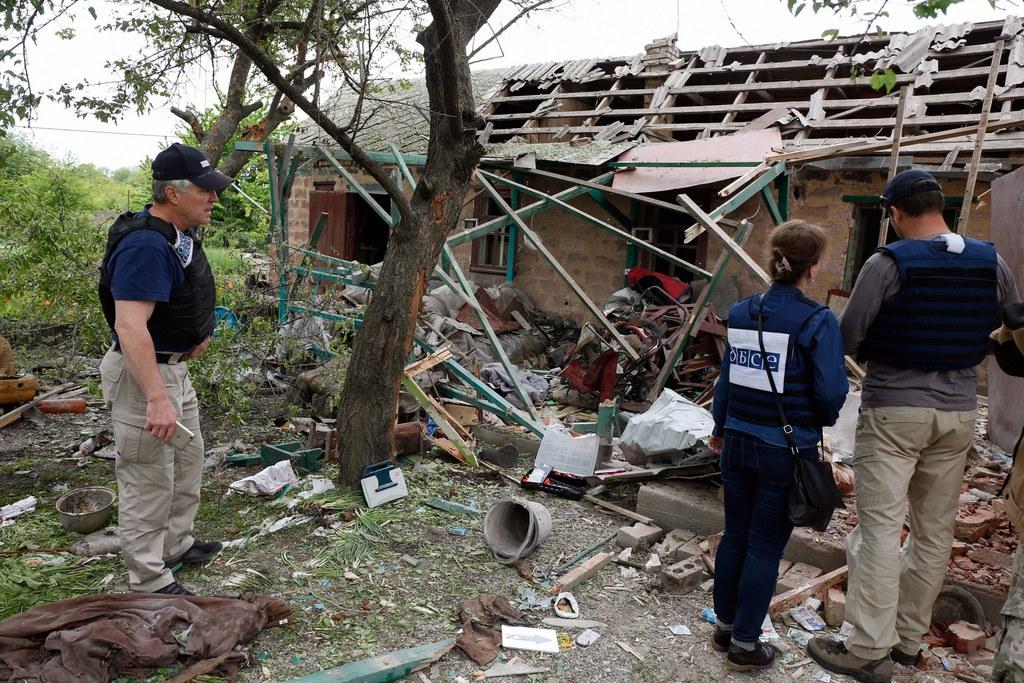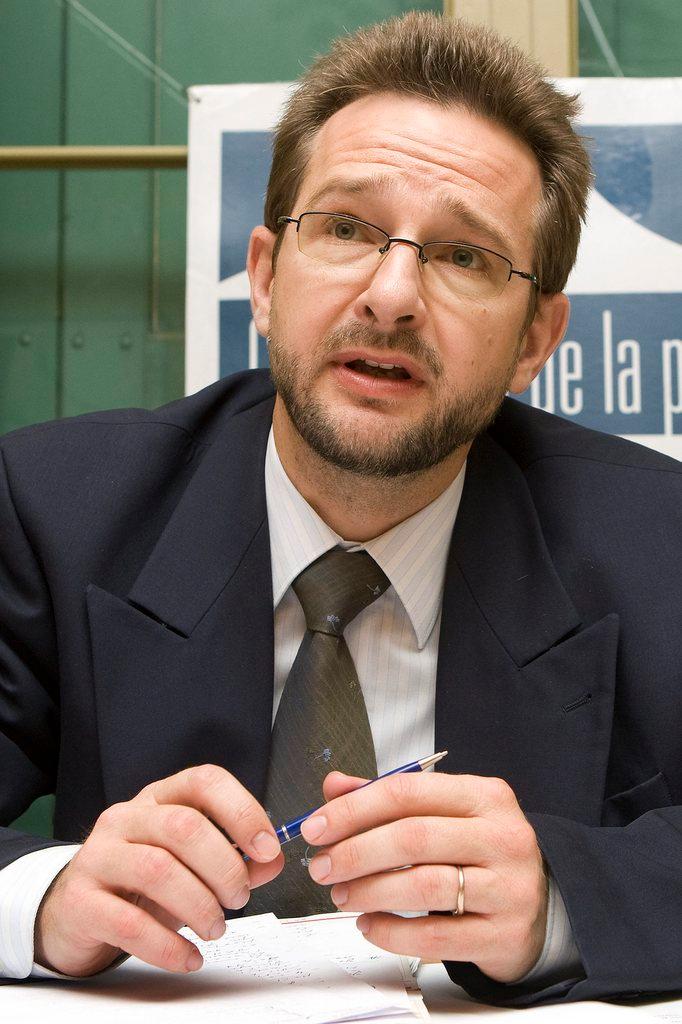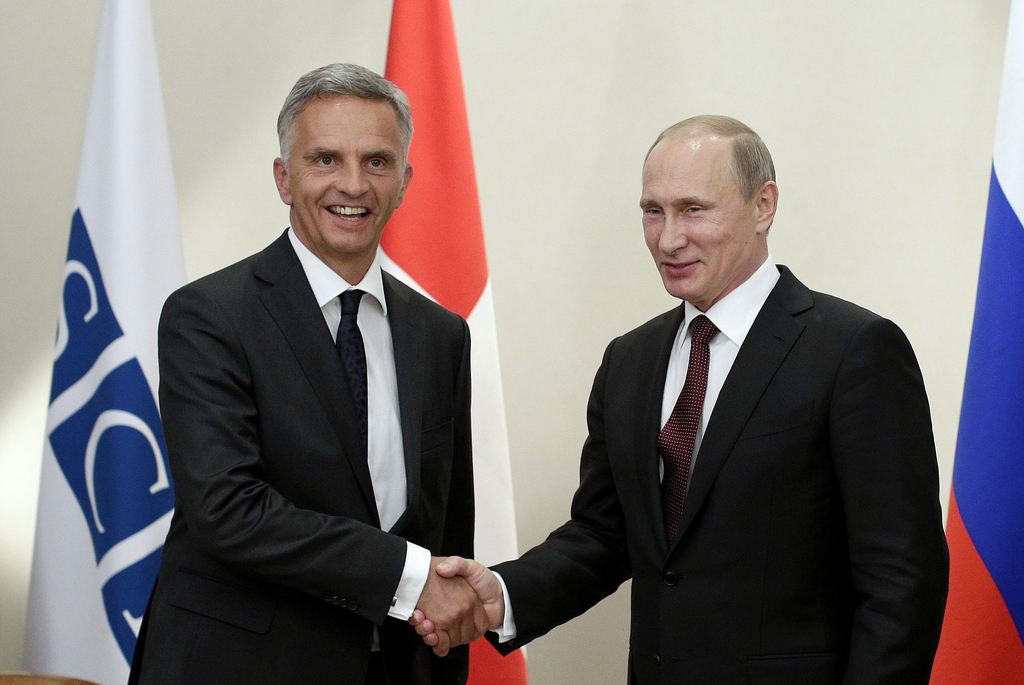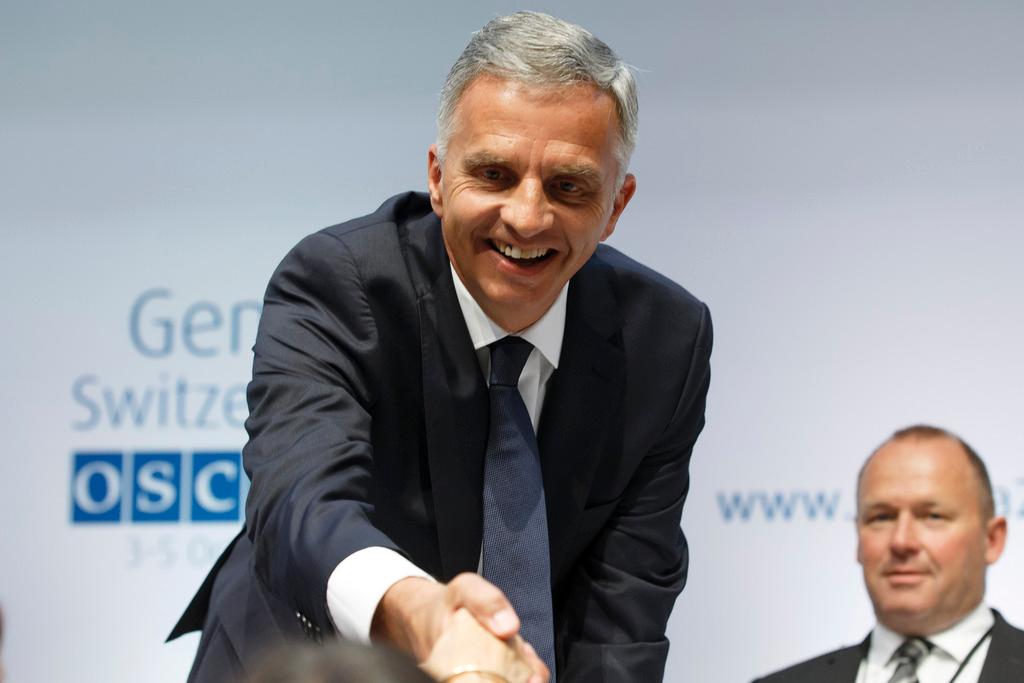Swiss diplomat set to be named new OSCE secretary general

Thomas Greminger, a top Swiss foreign ministry official, is expected to be appointed as the new secretary general of the Organization for Security and Co-operation in Europe (OSCE), it has been reported.
The Austrian press organisation APA published the news on Tuesday, after being informed by diplomats taking part in an informal gathering of the foreign ministers of the 57 OSCE member states at Mauerbach near Vienna. Greminger had applied for the post. A formal announcement is expected by the OSCE’s Permanent Council on Wednesday or Thursday.
OSCE chairman and Austrian foreign minister Sebastian Kurz also mentioned the likely appointment during a press conference. He praised Russia’s “constructive” role in overcoming months of deadlock on filling top posts at the security organisation. Four leadership positions are currently unfilled because of a failure to reach unanimous agreement among the member states of the security body, which groups the United States and Russia.
“We have to fight with a massive loss of trust in the OSCE,” said Kurz. “First of all, we need leadership … This was the big challenge of the past few months, I might even say, years.”

Greminger, who has been deputy general of the Swiss Agency for Development and Cooperation (SDC) since 2015, should replace the Italian Lamberto Zannier, whose mandate ended in June.
The Swiss already has extensive experience with the OSCE. In recent years, he has served as the permanent representative of Switzerland to the OSCE and headed the organisation’s Permanent Council during Switzerland’s chairmanship in 2014.
Ukraine conflict
In a speech in Mauerbach, Swiss Foreign Minister Didier Burkhalter described the OSCE as “the best opportunity for security in Europe”.
He praised the OSCE’s work in Ukraine, which he had recently visited, and urged member states to step up financial and political support to the OSCE’s 700-strong observer mission monitoring the conflict in Ukraine.
Fighting between pro-Russian rebels and government forces broke out in April 2014 after a pro-European uprising in Kiev ousted Ukraine’s Moscow-backed president. About 10,000 people have been killed in the three-year conflict.
The European Union imposed sanctions on Russia after Moscow annexed Crimea from Ukraine in 2014, and backed separatist rebels in the east.

In compliance with the JTI standards
More: SWI swissinfo.ch certified by the Journalism Trust Initiative












You can find an overview of ongoing debates with our journalists here . Please join us!
If you want to start a conversation about a topic raised in this article or want to report factual errors, email us at english@swissinfo.ch.